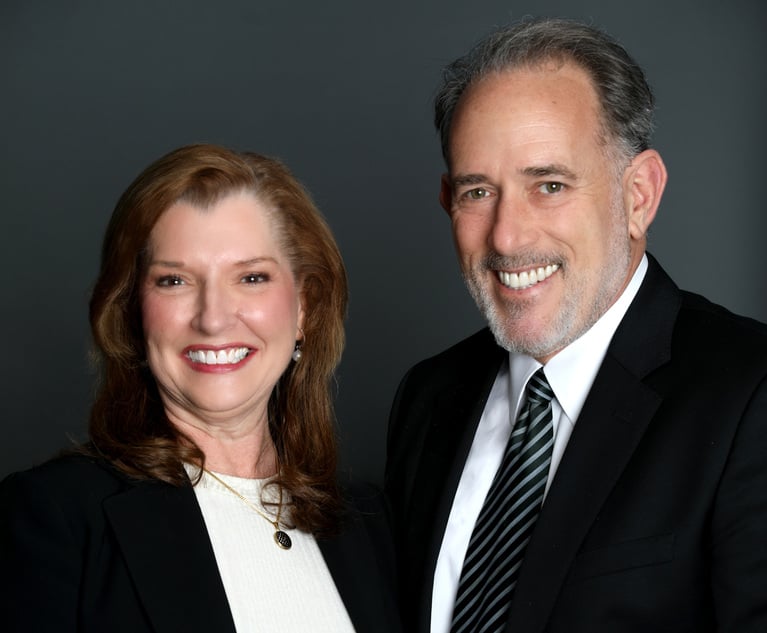We don’t know how long this recession will last. We do know it will change Big Law hiring numbers, timing and processes. If you’re one of the many talented, driven, prelawyer types whose plans just took a jolt, let me say I’m really sorry. This is no fault of yours, and it stinks. But it has happened, so how should you respond to it all? Let me start with two particulars on how firms hire, turn to their implications for particular cohorts of candidates and conclude with important themes for all would-be recruits.
Hiring’s Third Dimension: Success-Oriented Behaviors
A decade ago, firms looked for two things in candidates: smarts and interpersonal skills. The former was appraised based on academics and that later based on chatty in-person interviews. Over the past decade, things changed. Firms did some form of study of the characteristics of recruits that correlate with success at the firm. Success was measured as longevity (i.e., how long a recruit stays, the logic being that hiring and training associates is a major investment; associates have to stay five years to provide a decent return, and longer—through to partner—if they’re to be part of successfully building the institution.
The studies typically produced three findings that, in retrospect, should not have been surprising. First, regarding “smarts,” the studies showed no correlation between smarts (measured by GPA, prestige of law school or college, clerkships, etc.) and success at the firm. Indeed, in some ways, there was a negative linkage (e.g. associates from the elite law schools didn’t stay as long as their less-credentialed contemporaries).
Second, there was no correlation between interviewers’ average score for interpersonal skills and success. Looking deeper, candidates for whom the feedback was bimodal (some interviewers loved them, some hated them) performed better than those with higher average, but less varied, feedback. You can imagine how it works in practice: senior associates and partners will seek out the junior associates they really like and work with them effectively and repeatedly.
Third, the studies identified characteristics (different from smarts and interpersonal skills) that appeared to correlate with success. The sample sizes get small but varsity athletes seemed to do well, as did those who’d held major on-campus leadership roles. Military vets did well, as did people who’d had overcome significant obstacles to get to and through law school. Years of work experience made a difference but in a slightly complicated way: there wasn’t much difference in the success rate of hires who had zero to two years’ experience, but those with five or more years outperformed. People who’d worked in business rather than not-for-profits seemed to succeed; experience at big name investment banks was a marker of success. STEM undergraduates outperformed in certain practices.
These studies led to inclusion of a third dimension in candidate assessment. The taxonomy varies but the basic idea is to look for success-oriented behaviors: is this person interested in business? Are they driven? Do they take initiative? Are they resilient? The markers for these are largely in how they performed in their roles between college and law school, and these are now explored in the newly-purposeful in-person interview.
The Hiring Partner’s Motivations
It’s natural to think of hiring partners as the hub of a firm’s decision making about recruits. In reality, they’re just the outwardly-visible link in a more-encompassing process. Upstream, they are given numbers of people to hire by office and often by practice area within offices; downstream they have to report annually to the firm’s executive committee (EC) on whom they’ve hired. Quite often the hiring partner is not yet proven commercially (firms don’t put rainmakers into these roles). Consequently, they are a little anxious and eager to deliver to the office heads what they’ve asked for and to impress the EC with the quality of the intake.
A useful frame on this is to think of the data set the hiring partner shows to the EC in their annual read out. One stat they all show is offer acceptance rate, despite it having some pretty obvious adverse incentives. But it does underscore the importance of projecting enthusiasm for accepting an offer if you were to get one.
More broadly, the data set includes gender and diversity mix, average GPA and school mix, prestigious clerkships, law review, etc. However, the most powerful people within ECs are the rainmakers and the stats on which they focus are those that reflect success-oriented behaviors: years of experience before law school; varsity athletes; put-themselves-through-law-school types; military veterans; scientific and technical undergraduate degrees; other graduate degrees in addition to a JD; languages; former investment bankers; former consultants.
The import of all this: your route to being a more compelling candidate is to make the hiring partner look good by raising the averages on these dimensions that the most powerful people within the EC care most about.
Graduating JDs
Let’s start with something that should go without saying: if you have an offer, have not accepted yet, but plan to do so, do so now. Yes, we know from 2008 that offers do get rescinded even by eminent law firms.
If you have accepted an offer, be prepared to have your start date be pushed back. If 2008 is a model, then late in January or February 2021 would be a popular new start date. This deferral is not personal, it is just business. It is not in your interest to complain about it. People are seriously stressed at law firms right now and are going to be so for a while; if you project something short of complete understanding and appreciation you will be taken (with some justification) as unable to read the emotional state of people around you and as being immature.
As an alternative to starting later you may get offered some kind of furlough, e.g. a lump sum to defer your start date for a year or a subsidy to go spend a year working at a non-profit. My two cents: take the offer if you can make it work. Two reasons: First, being at the bottom of the associate pyramid when there’s not much work around is no fun. Not even the dull work flows down because the associates senior to you are desperate for the hours. You may well get put on cut-price document review that your firm offers clients just to defray some of what you cost. It’s not great experience; you’ll struggle to show adequate appreciation; you won’t garner the learning in your formational years that’s needed to realize your full potential. Second, you’ll be a better lawyer—and even a happier person—for having done something else. Increasingly being a successful Big Law associate is about more than legal work. Understanding clients’ needs from their perspective, learning how to develop relationships so you can sell yourself and others, and acquiring the tools for effective project management are all better learned outside of a law firm and then effectively and profitably applied within one. More generally, whatever the goal of your life is, it would be a meager existence if it were to make Big Law partner as young as possible.
What if your offer gets rescinded (or you never had one)? I’m afraid the drawbridges at in-house departments have gone up just as they have all over Big Law. One path would be a masters in tax, LL.M. or clerkship with the intention of trying again in the next cycle. If you’re drawn to this kind of thing, perhaps add to your list of options learning Chinese (it’s going to be in high demand over the course of your professional life) or another language.
Other things to consider? I’d strongly encourage looking at firms who are considered less prestigious on law school campuses, particularly at boutiques with a practice that’s common across Big Law. Law school students are hung up on the prestige of the firm to which they go. This is youthful naïveté. By the mid-years as an associate, and absolutely by partner, no one cares about the firm at which you started. They care about your potential to bring in high-quality business, something you’re more likely to do if you’ve gotten some good experience and learned to be scrappy and entrepreneurial while maintaining a certain polish. Frankly, you’re more likely to learn this at a less-prestigious firm where the partners are making things happen without having inherited house clients and a recognized brand name. I’d also encourage taking a non-legal business job (it’ll make you a better lawyer and perhaps a happier person). Probably best to explore a range of such options, and to start now.
Summer Associates
If your summer program gets shortened, or the lunches less lavish, don’t complain. Take any chance you get to show you’d be a valuable member of the firm full time. This matters even if your firm has a history of making offers to all summer associates. There are two reasons for this: first, making offers to all is a daft, anachronistic, practice and one from which firms will increasingly depart as they manage themselves more as the businesses they are; second, just because everyone appears to get an offer doesn’t mean everyone gets an offer—firms have learned to play the cold offer, e.g. “technically we’re making you an offer but we think our firm is an imperfect fit for you and advise you to look elsewhere.” This is a win-win: the summer associate avoids embarrassment; the firm avoids the associate.
Throughout the summer you should project that you would accept a full-time offer if it were forthcoming. Indeed, you very probably should accept an offer if you get one. Think of it this way: firms have probably over-hired for this summer relative to the numbers they are now going to want next fall, and some of next fall’s places will be taken up by deferrals from this fall; the hiring of 3Ls next academic year will be anemic.
Not Yet at Law School
The conventional wisdom is that grad school is a good place to hang out during a recession. There’s something to this. I expect we’ll see an uptick in law school applications.
If you have five years of work experience since college, then continuing on to law school now makes sense. Should you be worried that the upsurge in admissions will make the elite schools harder to get into? Yes, this will happen but, no, you shouldn’t worry about it simply because going to an elite school doesn’t matter nearly as much as garnering the right capability-building experiences before you go to school and on to a firm.
If you have just a couple of years of work experience, or are just graduating college, I don’t think bringing forward the timing of your going to law school because of the recession is advised. The work experience between college and law school is too important to your ultimate appeal to a Big Law recruiter, and to your professional effectiveness in general, to have it curtailed. The logic of the business cycle doesn’t trump the logic of setting yourself up for success.
Reality-Checking Aspirations
The competition to be hired will be intense. In consequence, more would-be associates will have to look seriously at firms below the super elite and elite tiers. This is less of a long-term set back to one’s aspirations than many may think.
It used to be that young lawyers joined firms aspiring to stay there through to partnership and beyond. There is much more movement between firms for associates today. A capable and dedicated associate who starts out at a firm below the top tiers can nonetheless aspire to join the elite. We saw this as the last recession eased: firms made up for the relatively small new associate classes they recruited early in the recession by hiring from competitor firms, particularly from firms that ranked below them in profitability and prestige. As was put uncharitably at the time, the elite turned those below them into their farm teams. While a problem for long-term competitiveness of second tier firms, this is a positive for law school graduates forced to start their careers below the prestige level they might have aimed for a year ago.
Office Preference
It behooves lawyers eager to join a particular firm to be thoughtful about their office preferences. All firms, even the most prestigious, vary across their offices in terms of how easily they can attract candidates that meet their standards. They’re typically strongest in their longer-established offices, weaker in their newer outposts. In consequence, if you really want to join a particular firm then identify yourself has having a preference for, say, Dallas or Charlotte rather than Washington D.C. or New York. Know that, once you’ve put in a couple of years in Dallas, it will be a lot easier for you to move to your preferred city than it would have been to start out there.
Let me add that indicating a preference for a particular office plays out differently within many firms’ recruiting processes from saying you’d be open to any office. This is because firms set their target recruiting numbers by office. After the first round, you’re lined up as a possible for a particular office. For this purpose, saying “open to any” is not going to be as productive as “wanting Dallas.”
Practice Area Preference
A similar logic applies to practice preference as to office preferences, i.e. recruiters are looking to fill certain “office, practice” slots; you have a better chance of being lined up for one of these if you are specific than if you are entirely open. The classic recession practices are restructuring and litigation (at least relative to corporate) so these would seem to be the highest potential options.
That said, alignment and assignment by practice is typically less rigid than that by office. It’s assumed that an incoming corporate or litigation associate would work in any of the respective subareas and even to cross between the two.
Bottom line: don’t project that you want, or arrive at a firm expecting, to work only in one particular area. Everyone is stressed; it won’t be well received.
Taking Time Out of Law School
What if you’re really eager to join an elite firm but are not on law review at Stanford, didn’t spend five years at Goldman Sachs, haven’t rowed in the Olympics, and don’t want to go to Dallas or practice BBR? Well you may not like this idea but seriously consider taking a year or two out and doing something different.
This is particularly so if you only worked for a couple of years between college and law school. And even more so if your work experience was a paralegal rather than in a business. Strong business experience will equip you better for the highly competitive hiring processes ahead but it’s more than that: it’s a myriad of valuable lessons that you’ll draw on wherever your legal career, and life more holistically, takes you.
Hugh A. Simons is formerly a senior partner and executive committee member at The Boston Consulting Group and chief operating officer and policy committee member at Ropes & Gray. Early retired, he now researches and writes about the business side of law firms and does some consulting for old friends. He welcomes reader reactions at [email protected].
NOT FOR REPRINT
© 2024 ALM Global, LLC, All Rights Reserved. Request academic re-use from www.copyright.com. All other uses, submit a request to [email protected]. For more information visit Asset & Logo Licensing.


 Photo: Shutterstock.
Photo: Shutterstock.









